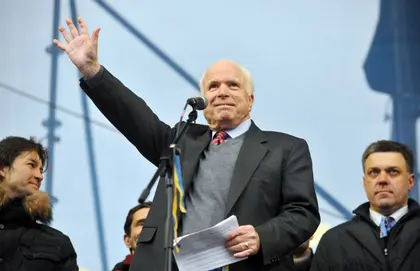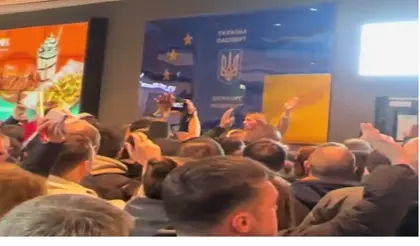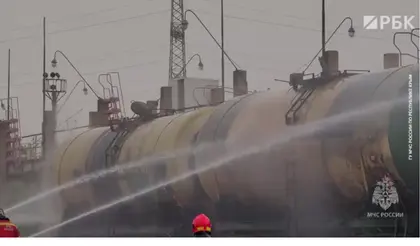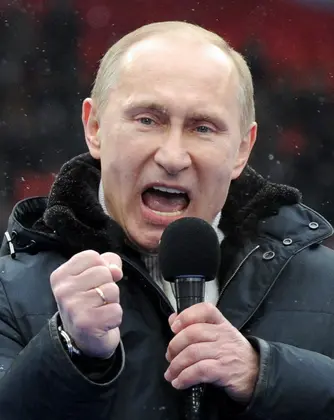Ukrainian politicians and activists are mourning the death of United States Senator and presidential candidate John McCain, who died on Aug. 25 at age 81.
McCain died in Arizona surrounded by his family. He was diagnosed with a brain tumor in July 2017 and had been undergoing medical treatment, which he stopped on Aug. 24.
During his political career, McCain repeatedly visited Ukraine and consistently argued that Ukraine’s political and social future lay in Europe.
The senator became famous in December 2013 for visiting the then-incipient EuroMaidan Revolution, touring protest camps arranged on Kyiv’s central square.
“Ukraine will make Europe better and Europe will make Ukraine better,” McCain said during the visit to thousands of EuroMaidan protesters gathered on Kyiv’s Independence Square.
The Kyiv Post interviewed McCain on that trip, along with U.S. Senator Christopher Murphy.
Two years later, McCain spent New Year’s Eve 2017 at a forward combat outpost with Ukrainian troops in the village of Shyrokine, near the Azov sea port city of Mariupol. McCain once again supported Ukrainians “in their fight against Putin’s aggression.”
Spending #NewYearsEve w/ brave #Ukrainian Marines at a forward combat outpost – we stand w/ them in their fight against #Putin‘s aggression pic.twitter.com/vkz0gdozVV
— John McCain (@SenJohnMcCain) December 31, 2016
Tributes pour in
Ukrainian officials hurried to express their condolences on Aug. 25.
Ukrainian President Petro Poroshenko called the death of McCain “sad news for all Ukrainian people.”
Sad news for all Ukrainian people – died a great friend of Ukraine Senator John McCain.
We will never forget his invaluable contribution to the development of democracy and freedom in Ukraine and the support of our state.
Condolences to the family and all American people. pic.twitter.com/G4gl9PYOyy
— Петро Порошенко (@poroshenko) August 26, 2018
The Embassy of Ukraine in the U.S. called McCain “one of the greatest friends of Ukraine and [an] American hero.”
Ukrainian Defense Minister Stepan Poltorak recalled McCain’s visit to the frontline with Russian-backed separatists near Mariupol, posting a photo of him and Ukrainian troops to Twitter.
“I made a small place for myself in the story of America and the history of my times” – said John MсCain. My sincere condolences for all American and Ukrainian people who knew senator McCain. #RIP pic.twitter.com/sqOZIcH5BD
— Stepan Poltorak (@poltorak) August 26, 2018
Prime Minister Volodymyr Groysman called McCain “an example of a principled politician.”
Ви були справжнім нашим другом і прикладом принципового політика. Україні вас бракуватиме.
Спочивайте з миром, сенаторе Маккейн. pic.twitter.com/zcGR0yUc95— Volodymyr Groysman (@VGroysman) August 26, 2018
“You were our real friend and an example of a principled politician. Ukraine will miss you. Rest in peace, Senator McCain,” the tweet reads in Ukrainian.
Foreign Minister Pavlo Klimkin said that McCain “could not be replaced” as a friend of Ukraine.
В України багато друзів. Але Джона Маккейна ніким не замінити. Добро та принципи – без компромісів: його життя стало прикладом для всіх нас.
— Pavlo Klimkin (@PavloKlimkin) August 26, 2018
Oleksandr Turchynov, secretary of Ukraine’s National Security and Defense Council, wrote “it was thanks to his efforts that Ukraine finally began to receive military aid from the U.S.,” calling him a “strong and honest person.”
Сенатор Джон Маккейн був з нами і на Майдані в 2013,і на Донбасі в 2015.Саме завдяки його зусиллям Україна врешті-решт почала отримувати військову допомогу від США.
Він був сильною та честною людиною, завжди йшов у своїх переконаннях до кінця. Пам‘ятаємо… pic.twitter.com/GyIELA7x2u— Олександр Турчинов (@Turchynov) August 26, 2018
Svyatoslav Vakarchuk, frontman of hit Ukrainian rock group Okean Elzy and a former MP, called McCain a “real son of America, and a real friend of Ukraine.”
Сенатор Джон Маккейн був людиною зі стержнем. Політиком з принципами. Спражім сином Америки. І спражнім другом України. Таких зараз мало. Сьогодні стало на одного менше…Thank you, Senator John McCain! Rest In Peace…
— Svyatoslav Vakarchuk (@s_vakarchuk) August 26, 2018
Arkady Babchenko, a Russian opposition journalist whose death was faked in a sting operation in May, praised McCain’s views.
Я хочу, чтобы после моей смерти в Мордоре обо мне говорили так же, как сейчас о МакКейне. “Самый главный русофоб”, “исчадие ада”, “главное зло Америки”.
Вы прожили правильную жизнь, сэр.
Покойтесь с миром.— Старшина Запаса (@StarshinaZapasa) August 26, 2018
“I wish that after my death, [Russia] would say the same as it now does about McCain. ‘The main Russophobe,’ ‘a fiend from hell,’ ‘the main evil of America.’ You lived the right life, Sir. Rest in peace,” the tweet reads.
Apart from support, however, there have appeared hundreds of posts on Tweeter denouncing McCain’s support of Ukraine and asking to pay attention to his “questionable legacies,” or saying that McCain supported in Ukraine “illegal overthrow of (Ex-President Viktor) Yanukovych who was democratically elected president.” They have collected few reactions on the social media, though.
Complicated Legacy
McCain, who maintained a hawkish reputation within Washington D.C., made a point of visiting Ukraine and supporting the country at various points throughout its history.
Most recently, McCain called for the U.S. to provide Ukraine with lethal weapons.
“Vladimir Putin’s violent campaign to destabilize and dismember the sovereign nation of Ukraine will not stop unless and until he meets a strong and determined response,” he said at the beginning of 2017.
At the same time, he maintained ties with characters that recent events have revealed to be unsavory. His 2008 campaign manager, Rick Gates, pleaded guilty to conspiracy and perjury charges in February 2018, before testifying against his former boss, Paul Manafort. The pair’s company – Davis Manafort – was paid by McCain’s 2008 campaign as a consultant.
McCain also played a little-known role in the ongoing scandal over Russian meddling in the 2016 U.S. presidential election.
In November 2016, McCain was approached by a British diplomat with knowledge of a privately produced dossier alleging that U.S. President Donald Trump was in thrall to the Kremlin, and had participated in a campaign to influence the election.
Through intermediaries, McCain arranged to receive a copy of the report. In December, he submitted it to then-Federal Bureau of Investigation Director James Comey.
You can also highlight the text and press Ctrl + Enter







Comments (0)